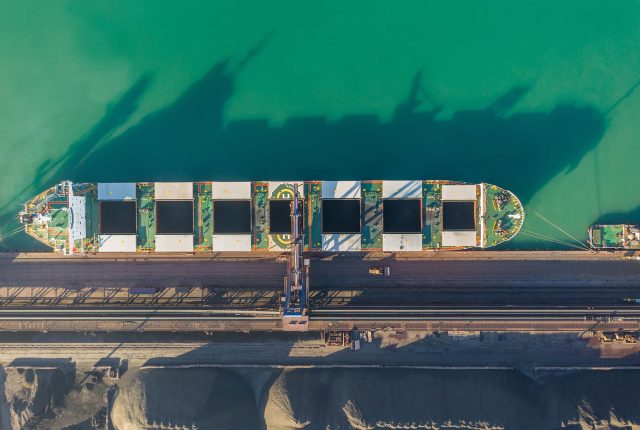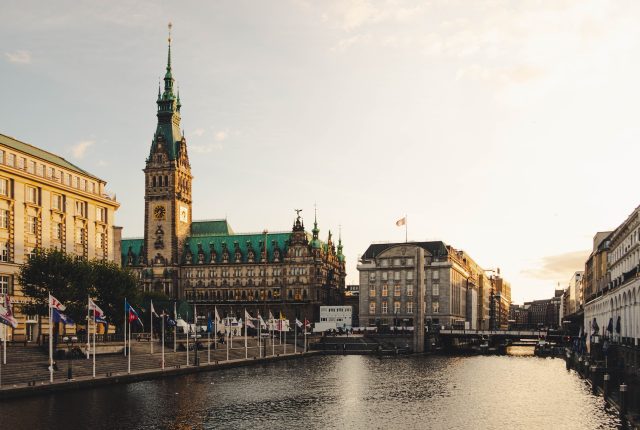
URSABLOG: Ice Cold in Beijing
I was up in England’s Lake District a few weeks ago visiting one of my sisters and her family. On the Saturday – a typically wet and grey February day, with the surrounding hills shrouded in low slung, rain-laden clouds – we went for an afternoon walk by Ullswater, the second largest lake in the area. With a maximum depth of just over 60 metres, it is typical of the U-shaped valleys in Cumbria (and further north in Scotland), scooped and scraped out by glaciers in the last ice age.
I had a little fun telling my nieces how they were formed, saying that glaciers were in fact big, heavy rivers of ice that not only erode the rocks more effectively by having so much pressure and force loaded on them, but the rocks they break off as they fall to the bottom of the glacier act as an abrasive force themselves, scouring the bed rock further. Naturally, my nieces – eight and twelve – tired of this impromptu lesson fairly quickly and ran off to leapfrog rocks, climb trees, or try to skim stones across the wind tossed lake. We all enjoyed ourselves however in our own ways.
The image of the slow moving, bedrock grinding glacier popped into my mind again this week as I read about the upcoming annual National People’s Congress (NPC) which starts in Beijing on Sunday. Apart from replacing Premier Li Keqiang, the head of government, other parts of the government will undergo a ‘forceful’ overhaul by Xi Jinping as he seeks to drive through more ‘far-reaching’ changes to solidify his precedent breaking reappointment as president for a third term, following his confirmation as party secretary and head of the military in October last year.
It all seems so inevitable. In October the Politburo Standing Committee was cleared out and replaced with long standing Xi loyalists, all men. Past failure is overlooked in favour of long-standing loyalty. Expertise is replaced by political experience and orthodoxy. Li Qiang, the former Shanghai party chief – who oversaw the disastrously draconian lock down in the city – is expected to be elevated to replace Li as premier. The urbane and Harvard-trained economist Liu He, vice-premier and economic tzar, is expected to be placed by He Lifeng, a man who has spent most of his career as a local politician. Wide and worldly experience is to be replaced by political nous. The Xi era ploughs on.
This is not an easy time for China: economically it is at a crossroads. Held back by zero-Covid restrictions and then panicked by the abrupt removal of them at the end of last year, the only economic policy at the moment seems to be rely on natural post-lockdown exuberance. Not that the economy will be left to do its thing: previous crackdowns on private education, technology and the property market so that they could be brought more in line with Xi Jinping thought (as well as the disappearance and re-education of prominent business leaders) have not created a freewheeling entrepreneurial environment. Financial sector reform is now on the agenda, as well as keeping an even closer eye on the technology and science sectors, hand in hand with increased party involvement with ‘non-public’ i.e. non state owned, enterprises. Pony Ma, the founder of internet giant Tencent – China’s most valuable company by market capitalisation – is not on the list of delegates for the NPC. One imagines the reform of the financial sector will not be letting many animal spirits roam free.
By placing financial reform under political – as opposed to technocratic – control could change how the Chinese economy functions in significant ways. Central bank policy could be altered to answer immediate political expediency rather than keeping an eye on long term monetary policy. As Victor Shih, professor of Chinese political economy at the University of California said this week:
“Of course, we know the central bank has always been a government organ that obeys the overall direction of the Communist party. That’s by design. But it has been run by career technocrats for decades. By appointing career local government politicians… could have the effect of putting short-term political objectives well ahead of medium-term policy objectives.”
This is potentially good for shipping. A few sharp bursts of Chinese monetary stimulus never did the freight markets any harm. If, as expected, the NPC sets a full-year GDP growth target of 5 to 5.5 per cent, according to some analysts the new government could also try to boost growth by channelling more funds to the property sector or to boost consumption. I am not that convinced however. Xi Jinping’s common prosperity goals do not tend to encourage hedonistic pleasures, or buying houses for capital gain as opposed as places to live in. And political control also means the restraint of anti-party elements, whatever they may appear to be at the time, just as much as giving people more power to spend. In any case, short term unpredictability could have the counter-effect of deterring investment by failing to convince domestic and foreign investors that there is a long-term plan, weakening the economy further.
Concern persists that the challenge of sustaining higher growth beyond the post-Covid bounce, especially if China is to achieve its goal of becoming a “moderately prosperous” society by 2035, is really achievable. China would have to maintain average annual growth of 3.5 per cent until 2035 to reach the threshold of US$ 20,000 of income per capita per year. I have a nagging feeling that Mr Xi doesn’t find that goal entirely desirable.
And then there is the geo-political to consider too. I need only mention Taiwan and you will understand what I mean, leaving aside all the hot air expended on balloons. A letter to the Financial Times earlier this week from the Embassy of the People’s Republic of China in response to an article says it all:
The one-China principle is a red line that shall not be crossed…It is also the political foundation and prerequisite for the establishment and development of diplomatic relations between China and all other countries in the world… Any attempt to distort the facts or deny and challenge the one-China principle will end in failure.
We tend to think of China as monolithic and all powerful, and certainly this is how the party would like us to see them. We say “the Chinese would never do this” or that, without considering the many different levels and spheres of interest, and how in fact China appears to the rest of the world, and what parts of it. What is important to President Xi does not carry the same weight with Jack Ma, or a migrant worker in Shanghai, however much President Xi would like it to be so. More than that, although in this emerging cold war the Chinese would like us to see all elements of the country interconnected and in tune with each other, there are a number of different Chinese glaciers (for want of a better phrase) moving in different directions, at different speeds, of different densities and momentum, all at the same time. The political, the geo-political and the economic (not to mention the sociological, demographic and historical) stresses exert different pulls, and carve out different paths depending on what they have dislodged and swept before them, and what lies before them. Sooner or later they will end up in different places.
At the end of the last ice age, temperatures warmed, glaciers retreated, the ice sheet melted and sea levels rose. The island of Great Britain was cut off from Europe, and many fjords were flooded. This all happened very quickly in geological terms, and left behind significant reminders of outstanding natural beauty. It also left the template within which countries developed and then interacted. But glaciers are not the only things that have formed our landscapes: rivers in infancy create V-shaped valleys, because the spread of water is narrower, and their erosive force is concentrated in a thinner line. Mature rivers have flood plains to meander over. Volcanoes dramatically alter the status quo, in places without water the wind does its own stuff. And then there is the sea itself.
My feeling about China right now is that it will continue to shape how the world works, prospers, fights, trades and therefore the health of the shipping industry will remain dependent on it. The NPC will do its best to marshal all the forces at its disposal to appear that everything and everyone is going in the same direction, with the same intent and purpose. But the momentum built up already for decades or more, and the different pressures will diverge further as time progresses. What this means to the world of the future now is unknowable to us now.
Glaciers during the ice age existed because there was an ice age, but most did not survive the retreat of ice sheet. Neither did many species: mastodons and mammoths, as well as sabre-tooth tigers and dire wolves became extinct because their environment vanished. If there is a metaphor in all this for China, perhaps it is that despite the size, purpose and desire of a state, it can only continue succeed if it is adaptable to a change in environment despite the accumulation of massive power and strength. I wonder how long this coming political ice age will last.
Best regards,
Simon Ward


